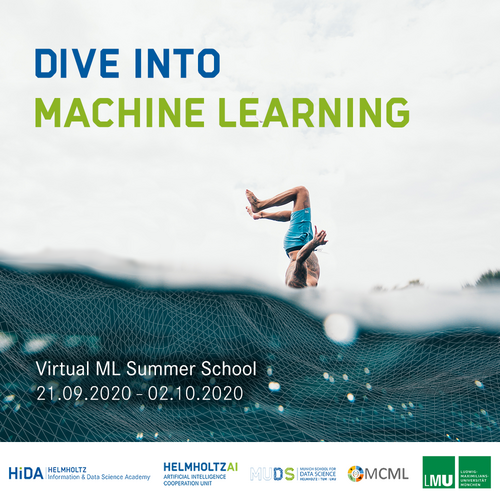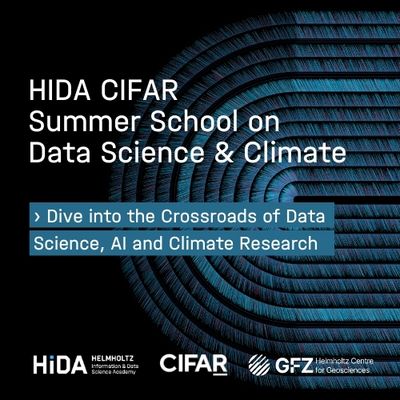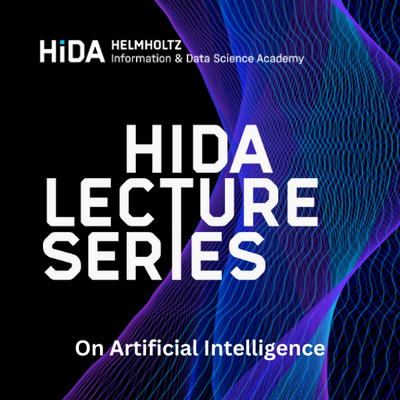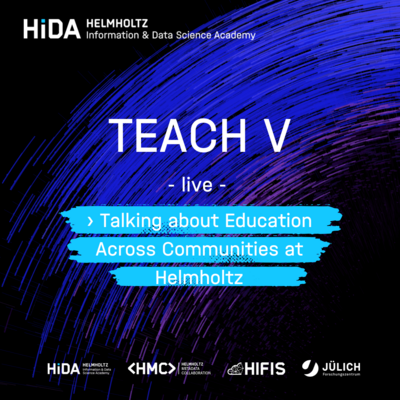Helmholtz Virtual ML Summer School 2020
Introductory course in basic techniques and concepts of supervised Machine Learning
The core of the Helmholtz Virtual ML Summer School 2020 program is an introductory course in basic techniques and concepts of supervised machine learning, which has become a central component of modern data analysis. In particular, nonlinear and nonparametric methods have been successfully used by computer scientists and statisticians to uncover complex patterns and relationships.
powered by HIDA, in cooperation with Helmholtz AI, MUDS, LMU, MCML
Program
21.09.
- Welcome and opening by Fabian Theis
- ML Basics
- Supervised regression
22.09.
- Supervised regression
23.09.
HIDA Virtual Career Day
24.09.
- Supervised Classification
25.09.
- Keynote by Bernd Bischel on mlr3
- Supervised Classification
28.09.
- Evaluation
29.09.
- Helmholtz AI showcase by Dominik Thalmeier: "Using anomaly detection to identify mutations that effect hearing behavior".
- Trees
- Random Forests
30.09.
- Trees
- Random Forests
01.10.
- Tuning
- Helmholtz AI showcase by Christian L. Müller: "Sparse predictive modeling of microbiome data".
02.10.
- Practical Advice
Course profile
The focus of the course is to provide a basic understanding of the various algorithms, models and concepts while explaining the necessary mathematical principles.
Participants will acquire both theoretical and practical skills related to some basic models of learning from data. Participants will also be empowered to conduct a data analysis project in order to critically evaluate the advantages and disadvantages of different methods.
Live meetings and group work (except September 23) will take place from 1:00 to 4:30 pm.
Students are expected to prepare course materials (videos, quizzes, online exercises) independently and at their own pace in preparation for the live sessions. The live meetings and group work will be used to put the concepts learned into practice.
A few weeks before the course begins, you will receive access to the course materials. Organize your learning time yourself: You can prepare individual topics in the morning before the afternoon meetings or in the weeks before the course starts.
Prerequisites
The course is designed for ML beginners with basic knowledge, university level, education in mathematics and statistics:
- Basic linear algebra: vectors, matrices, determinants.
- Simple calculus: derivatives, integrals, gradients
- Some probability theory: probability, random variables, distributions
- Basic knowledge of statistics
- (Linear) modeling from a statistics perspective is helpful, but not required.
- Basic knowledge of R
Course language: English
Lecturers
Bernd Bischl (LMU Munich, MCML)
Tobias Pielok (LMU Munich)
Heidi Seibold (Helmholtz AI)
Show Cases
Christian L. Müller (Helmholtz AI, HMGU Munich, LMU Munich, Flatiron Institute New York)
Dominik Thalmeier (Helmholtz AI)
Course concept and learning materials
The Helmholtz Virtual ML Summer School program builds on the Introduction to Machine Learning (12ML) course program developed by Bernd Bischl, Fabian Scheipl, Heidi Seibold, Christoph Molnar and Daniel Schalk. Concept and materials are freely available under Creative Commons Attribution 4.0 International (CC BY 4.0). If you use the course, the initiators would be happy about feedback!
Registration
Deadline for registration was 31.07.2020.
Registrations that we received later were automatically put on the waiting list. The demand was very high, so we will try to offer more events of this kind in the future.
Send us an email to hida-courses@helmholtz.de if you would like to participate in similar events and let us know which Information & Data Science topics you would like to learn more about!
Subscribe to the HIDA newsletter to be informed about our activities in the future.
MUDS, Helmholtz AI and HIDA are part of the Helmholtz Incubator Information & Data Science.







